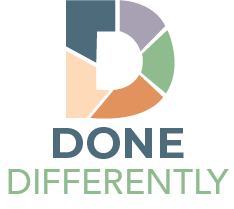If your coaching work touches grief, loss, anxiety, or identity rebuilding… there’s a good chance you’ve coached someone living with trauma—even if they never used the word.
PTSD Awareness Day (observed July 1) offers a thoughtful opportunity to show up for your audience in a meaningful way. But many life coaches hesitate. What if it feels performative? What if you say the wrong thing? What if you’re not a therapist?
Let’s talk about how to build marketing trust without overstepping your scope.
1. Start by Acknowledging, Not Educating
You don’t need to explain what PTSD is. Your role isn’t clinical—it’s relational.
Instead of stats or definitions, try messaging like:
- “Some of my clients carry invisible weight from experiences they don’t always talk about.”
- “Not every struggle is meant to be fixed—but it does deserve to be respected.”
Speak from your lens as a coach, not as a professional expert on trauma.
2. Embrace Quiet, Trust-Based Visibility
Awareness weeks like this aren’t always about bold content—they’re about aligned content.
- A short post acknowledging the day with a personal insight about working with clients navigating hard emotional terrain
- A story (with consent or anonymity) about a moment a client chose to reclaim their voice, not just their goals
- A blog or video that highlights your coaching values: safety, agency, presence
When you show your integrity and values, you build trust with trauma-aware clients—even if they’re not ready to work with you yet.
3. Don’t Be Afraid to Mention Your Boundaries
Trauma-aware clients often feel safer with professionals who know their lane.
- “While I’m not a therapist, I coach clients who are rebuilding trust in themselves after difficult experiences.”
- “If you’re working with a counselor and ready for support around forward movement, I’m here.”
This type of message does two things:
1. Signals safety and ethics
2. Filters in aligned clients who are ready for growth—not crisis care
4. Leverage Your Website to Reinforce Trust
If you choose to speak about trauma sensitivity in your social media or content this week, make sure your website backs it up.
- Does your About page reflect your coaching style and values?
- Do your service descriptions reference holding space, listening, or client pacing?
- Do your contact forms or discovery calls offer low-pressure language?
Your marketing doesn’t need to be loud—it just needs to be safe.
5. Avoid the “Capitalization” Trap
If you post something related to PTSD Awareness Day, don’t tie it directly to a CTA or sales message. That’s a fast way to lose trust.
- Share insight, then invite people to explore your content library or sign up for a free reflection prompt
- Offer a “quiet resource” like a downloadable journal page or reflective quote
- Mention your email list—but frame it around community and safety, not a funnel
Final Thought
You don’t need perfect words to be trustworthy—you need intentional ones. PTSD Awareness Day isn’t a marketing hook. It’s a moment to reinforce the kind of coach you are. Quiet, safe, present. That’s more powerful than a promo ever could be.

